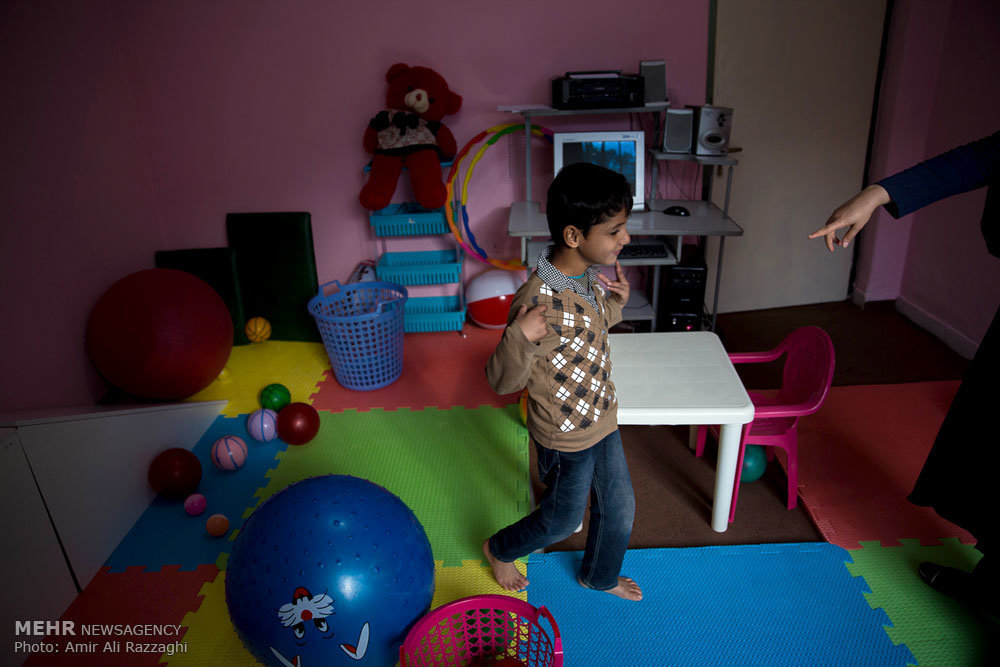Subsidies doubled for underprivileged patients suffering autism

TEHRAN – The Ministry of Health has doubled the subsidies allocated to 4,000 autistic patients under the Welfare Organization’s coverage, granting 10 million rials (nearly $250) subsidies per patient, head of the transplantation and treatment of diseases department at the Ministry of Health has announced.
“Currently, some 8,000 people have been diagnosed with autism disorder in the country,” ISNA quoted Mehdi Shadnoosh as saying on Saturday.
“It should be noted that autism disorder is among the most prevalent disorders in the country, which has increased dramatically over the past decade,” he added.
Although, regional programs have been implemented or are being implemented in rural and urban areas, the programs are less satisfactory from the parents of autistic individuals point of view, he lamented.
In order to promote facilities and services for these patients, various governmental bodies, public and families of the autistic individuals must participate through a comprehensive and coordinated program, he also added.
He went on to say that significant programs are underway through the country's Special Education Organization, but we need a comprehensive program to achieve better results in this field.
“It is estimated that about 320,000 autistic individuals can be identified in the country, approximately 35,000 of them are children under school age, up to 7 years old,” he stated, adding, early diagnosis and interventions for autistic children is of great importance.
Pointing to each level of the disorder having its own therapeutic methods which sometimes differ from one another, he noted that an identification card for different autistic patients is currently being provided in the country, through which different rehabilitation and educational services will be provided to the patient.
“Some 62 centers offering treatment and rehabilitation services to autistic patients are operating under the medical sciences university’s supervision nationwide, which mostly offer services to those financially struggling patients,” he highlighted.
“A supportive package including occupational therapy, speech therapy, behavioral interventions, and counseling services have been scheduled to be provided to these children and their families by the aforesaid centers,” he also stated.
“These centers are supposed to provide the packages with government tariffs, in addition, some 4,000 patients in financial distress will receive subsidies amounting to 10 million rials (nearly $250), which is doubled compared to before,” he concluded.
Autism spectrum disorders (ASD) are characterized by social-interaction difficulties, communication challenges and a tendency to engage in repetitive behaviors.
World Health Organization estimates that 1 in 160 children has an autism spectrum disorder worldwide.
Autism cannot be diagnosed at birth. A study, published in February 2010 in Science Daily, of the development of autism in infants, comparing the behavior of the siblings of children diagnosed with autism to that of babies developing normally, has found that the nascent symptoms of the condition -- a lack of shared eye contact, smiling and communicative babbling -- are not present at 6 months, but emerge gradually and only become apparent during the latter part of the first year of life.
According to Autism Parenting Magazine research is increasingly proving that children with an autism spectrum disorder benefit from the earliest interventions possible. In 2001, the U.S. National Research Council urged families not to use the “wait and see” method for early intervention as it was “likely to have significant and negative consequences.”
Evidence-based psychosocial interventions including behavioral treatment and parent skills training programs, can reduce difficulties in communication and social behavior, with a positive impact on wellbeing and quality of life for persons with autism and their caregivers.
Globally, people with ASD are often subject to stigma, discrimination and human rights violations, and in general access to services and support for people with ASD is inadequate.
FB/MQ/MG

Leave a Comment